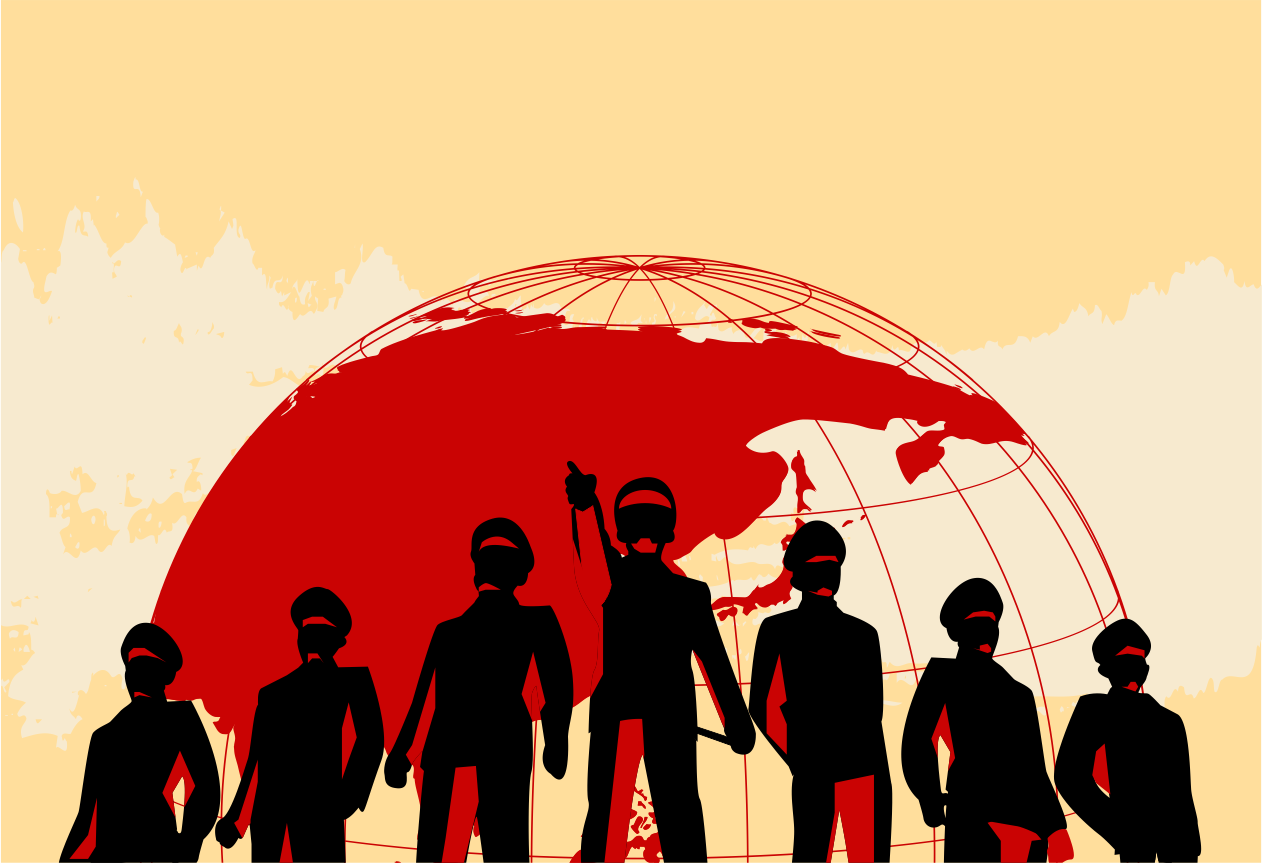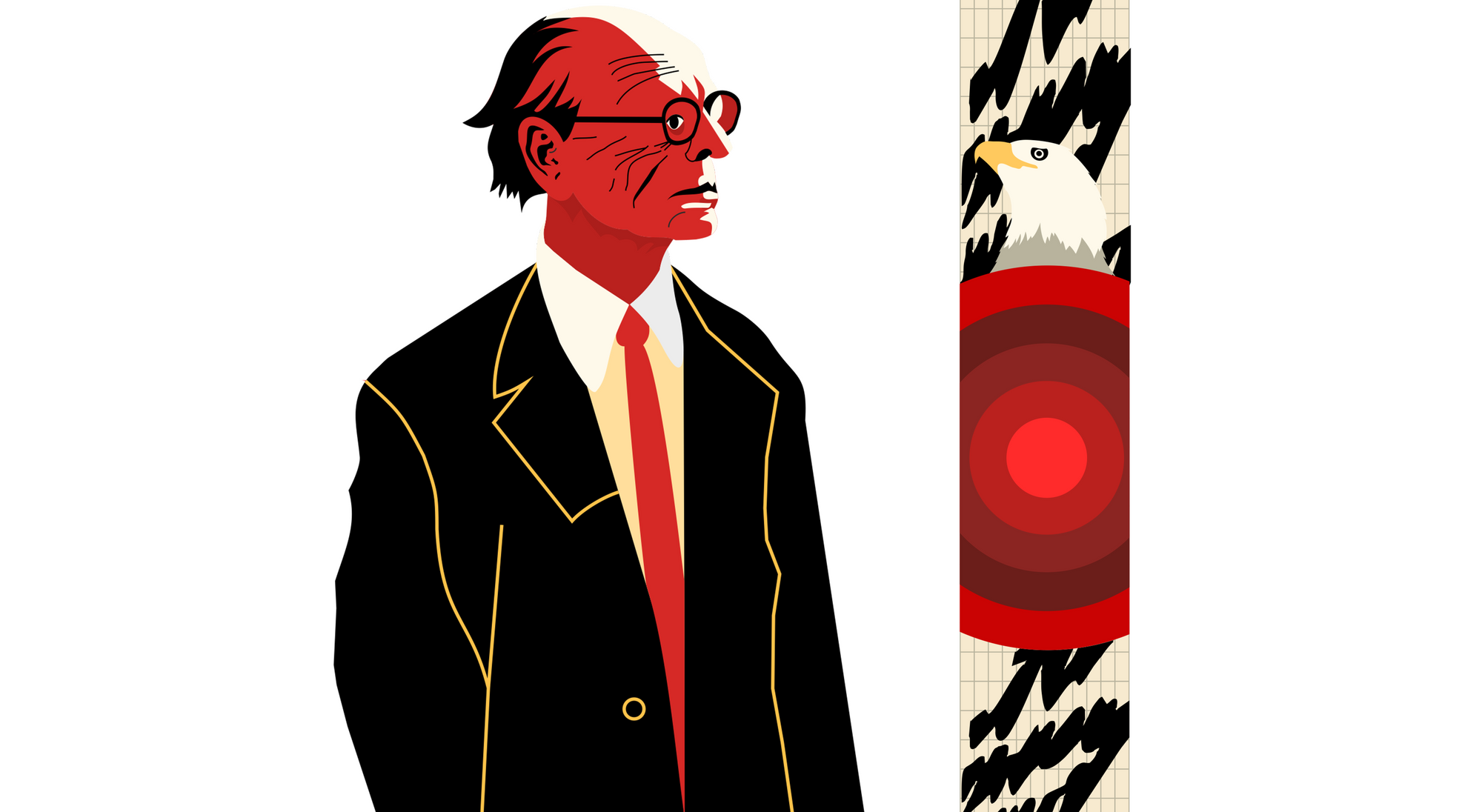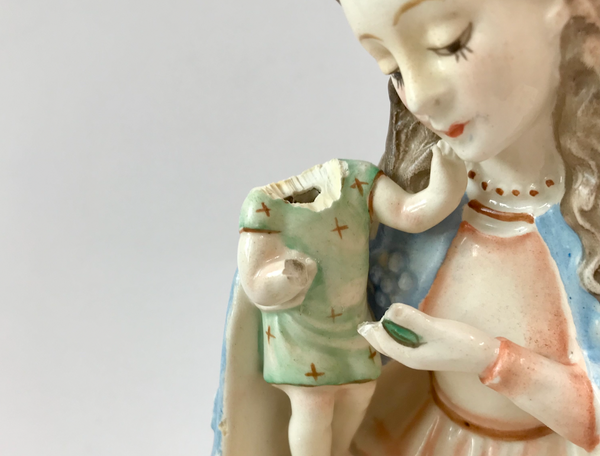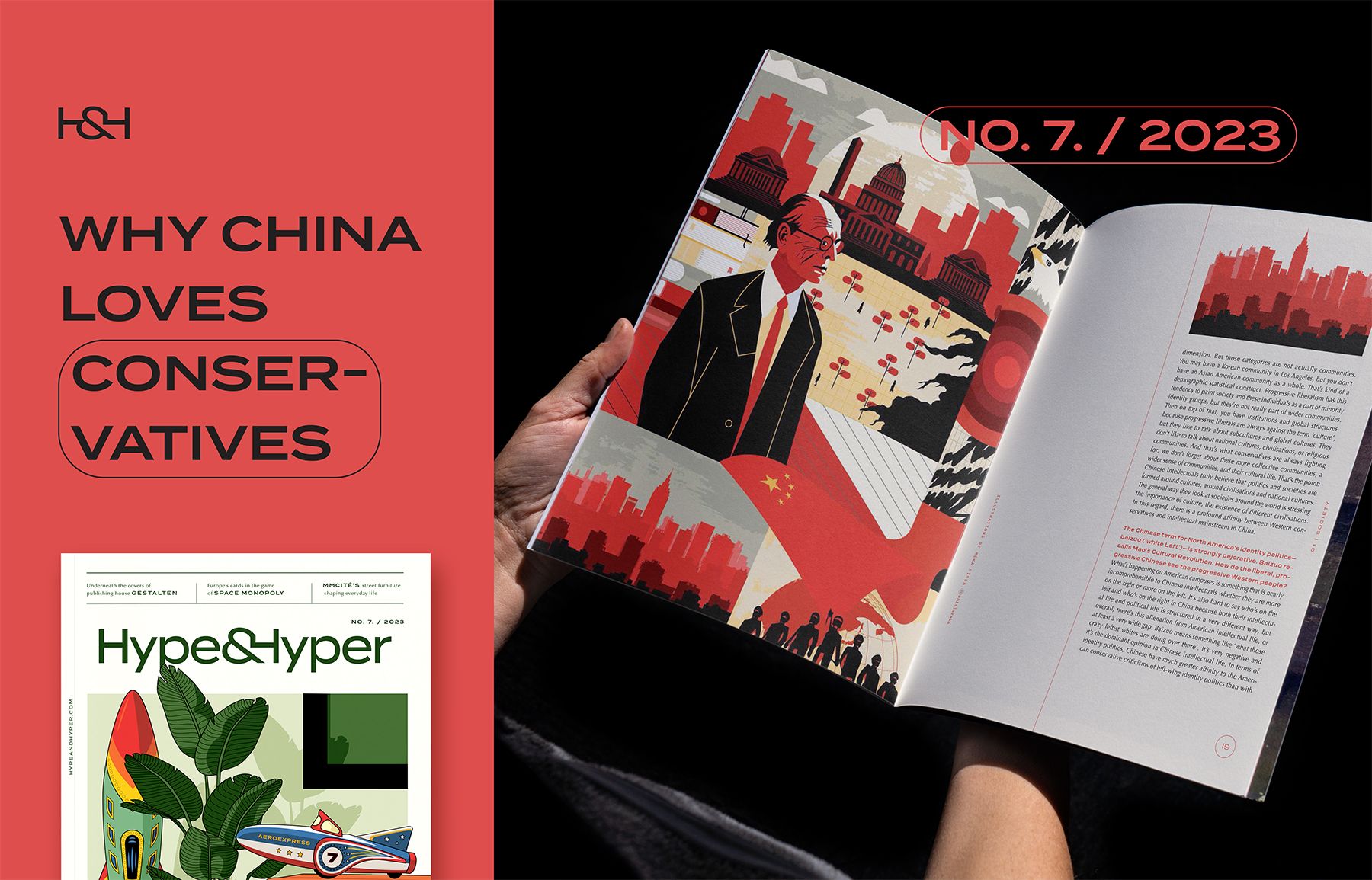Western Conservatives and Chinese Marxists agree that any society, and a healthy one in particular, is held together by an integral, holistic culture. What brings two political sides together and why do Chinese intellectuals love Samuel Huntington? Interview with Dr. Eric Hendriks-Kim.
Dutch sociologist Dr. Eric Hendriks-Kim, who researches China’s integration into the global order, is keenly interested in the ideological tensions involved. Currently, he’s working on his book about contemporary Chinese concepts and how they seek to challenge liberal, Western-centric views of the world order.

In one of your essays, you highlighted the connection between the Marxist-Leninist Chinese political elite and Western conservatives. Even though they seem very far from each other in the political sense, their relationship is very strong. How?
First, it's important to stress that the Chinese’s love for conservative intellectuals in the West is peculiar because they are actually very hostile towards China. China is still an officially communist society led by a Leninist state. The conservative intellectuals, for instance in the United States, have been among the most vocal ideological critics of the Chinese People's Republic. Therefore, it’s fascinating to see that, if you look at Chinese intellectual discourse, you'll find that there is a surprising love for conservative thinkers such as Leo Strauss, Huntington, and Karl Schmidt.
We are in a situation where there is growing hostility between the aforementioned camps. Some people are even speculating about the rise of a new Cold War.
Still, there's so much love in Chinese intellectual life towards Western conservatives and Western conservatives must know about this. Of course, there are huge ideological differences, I'm not denying or trying to trivialise those differences, and Western conservatives are not friends of a Leninist party state. However, surprisingly enough, they share affinities towards each other, for example, in their holistic vision on culture. Progressive liberals in the West put the emphasis on globalisation, global structures, atomised individuals and institutions. The society consists of atomised individuals who creatively construct their identities as the intersection of different demographic categories: let's say you're gay, Asian, American, and then your identity is in the sexuality dimension or in the ethnic dimension. But those categories are not actually communities. You may have a Korean community in Los Angeles, but you don't have an Asian American community as a whole. That's kind of a demographic statistical construct. Progressive liberalism has this tendency to paint society and these individuals as a part of minority identity groups, but they're not really part of wider communities. Then on top of that, you have institutions and global structures because progressive liberals are always against the term ‘culture’, but they like to talk about subcultures and global cultures. They don't like to talk about national cultures, civilisations, or religious communities. And that's what conservatives are always fighting for: we don't forget about these more collective communities, a wider sense of communities, and their cultural life. That’s the point: Chinese intellectuals truly believe that politics and societies are formed around cultures, around civilisations and national cultures. The general way they look at societies around the world is stressing the importance of culture, the existence of different civilisations. In this regard, there is a profound affinity between Western conservatives and intellectual mainstream in China.

The Chinese term for North America’s identity politics—baizuo (‘white Left’)—is strongly pejorative. Baizuo recalls Mao’s Cultural Revolution. How do the liberal, progressive Chinese see the progressive Western people?
What's happening on American campuses is something that is nearly incomprehensible to Chinese intellectuals whether they are more on the right or more on the left. It's also hard to say who's on the left and who's on the right in China because both their intellectual life and political life is structured in a very different way, but overall, there’s this alienation from American intellectual life, or at least a very wide gap. Baizuomeans something like ‘what those crazy leftist whites are doing over there’. It's very negative and it's the dominant opinion in Chinese intellectual life. In terms of identity politics, Chinese have much greater affinity to the American conservative criticisms of left-wing identity politics than with left-wing identity politics. From there, you can wonder: is there something more into it? And then I dug deeper and found the love of Chinese people towards conservative Western thinkers such as Leo Strauss and Samuel Huntington.
Why? Huntington published The Clash of Civilizations in 1996 highlighting the geopolitical importance of civilisations and cultures. It was an answer to Francis Fukuyama who said that liberal democracy means the end of history…
This mindset that was described in the book of Huntington is in a line with China's official self-understanding.

There were some books in history that wanted to analyse and describe the self-understanding of the Chinese nation. How would you describe that yourself?
China sees itself as a civilisation while Huntington describes the world as consisting of different civilisations. Huntington was aware that there are border zones between civilisations and that you can draw your civilisations out on a map in different ways but it's still important to see that when it comes to political traditions and cultural values. When the book was first published, a lot of Chinese intellectuals were slightly hesitant about it because their ideal is still that civilisation should get along and not clash. The prediction of a clash was rather pessimistic, but the world of civilisations is completely aligned not just with the general intellectual mainstream consensus in China, but also specifically with the way the Communist Party has been presenting itself on the world stage. When Westerners criticise China's human rights record, Chinese say: we believe in human rights, but your version of it is a Western version, our Chinese interpretation is different. So, they play the culture card. Often very opportunistically, but it's part of their propaganda and strategic self-presentation. They play the civilisation and culture card to deflect criticism coming from the West.
You should democratise, you should have Western style human rights, you should have rule of law the way we have rule of law.
Yes, and China says: back into your box, those things are only legitimate inside Europe and inside North America, but we have a different civilisation with different traditions. When Chinese people travel abroad, they immediately hit a very strong cultural wall. If you live in the West, the West is so influential, that sometimes it's easy to forget about the existence of other civilisations. If you're a Chinese person going to the United States to study, there's no way that you can overlook the fact that you've crossed a very significant cultural boundary...
Illustrations: Réka Pisla
Continue reading in H&H issue no.7!
ORDER HERE
Canteen #5—Ragouts

From monastery to boutique hotel










